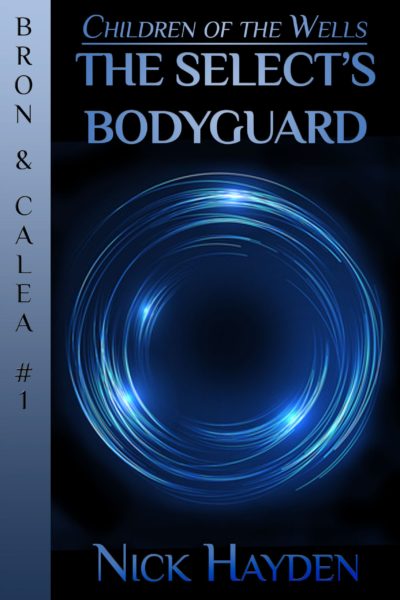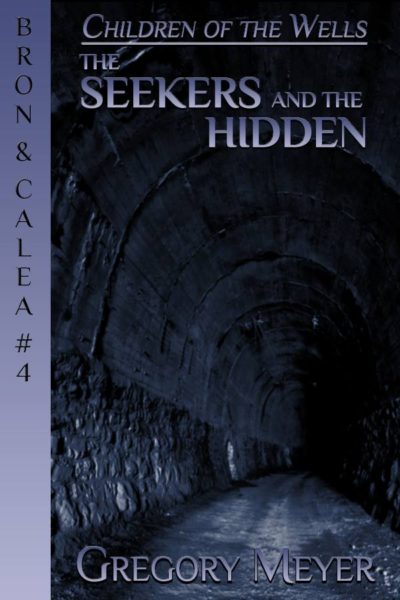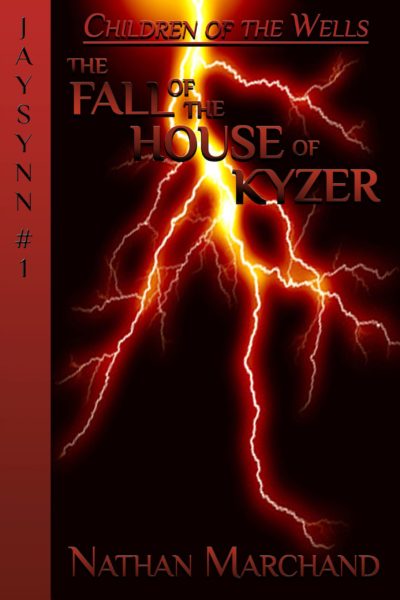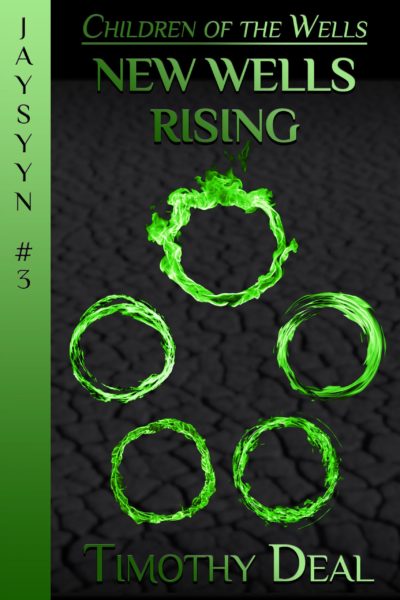by Nathan Marchand
March 24, 2015
My apologies, dear readers, for this late blog. There are a couple reasons for this. First, my family has been dealing with the death one of my uncles. This, among other things, aggravated the second reason: it delayed my reading of the book I wanted to write about for this good reads blog. I very much wanted to discuss this particular book because 1) it’d been sitting unread on my shelf for too long, 2) it’s an amazing piece of literature, and 3) it keeps things in the Children of the Wells family.
That book is The Isle of Gold by none other than our very own Nick Hayden.
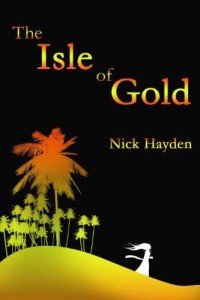 The tagline for this book says, “He sailed into unknown seas to discover wonders, women, and wealth. Now all he wants is a drink of water.” Some may think they’ll be getting a Pirates of the Caribbean-esque adventure story or perhaps a fantastical take on Robinson Crusoe. In truth, it’s a bit of both. It begins with a shipwrecked sailor—who has a silver arm—awaking on the beach. He explores the island to quench his extreme thirst only to discover a beautiful living statue of a woman whose curse he tries to lift.
The tagline for this book says, “He sailed into unknown seas to discover wonders, women, and wealth. Now all he wants is a drink of water.” Some may think they’ll be getting a Pirates of the Caribbean-esque adventure story or perhaps a fantastical take on Robinson Crusoe. In truth, it’s a bit of both. It begins with a shipwrecked sailor—who has a silver arm—awaking on the beach. He explores the island to quench his extreme thirst only to discover a beautiful living statue of a woman whose curse he tries to lift.
While it’s full of fantastic creatures and characters, this story is more about philosophy than plot. The narrator, much like Nick himself, is always espousing and evaluating ideas. He asks questions, but he doesn’t always answer them. In the hands of most writers (perhaps even me) this might’ve been a simple, straight-forward, though creative, adventure story, but Nick elevates it to what is arguably literary fantasy. Many plot points, characters, and settings are rife with symbolism. Someone could easily re-read this book just to mine the plethora of multilayered ideas. Like most classic literature, these ideas are understated and must be discovered through careful reading.
The style reminded me of C. S. Lewis and to a lesser extent J.R.R. Tolkien. Lewis because of the densely layered philosophies and ideas injected throughout. The story itself is very Lewis-ian. Perhaps equal parts Perelandra and The Great Divorce with some Narnia sprinkled on top. Actually, it might be more accurate to say it draws from Till We Have Faces. The prose itself is beautiful and articulate. However, there aren’t many big and/or obscure words to daunt some readers. Like Tolkien, Nick in this book takes small words and fills them with meaning. The protagonist speaks frequently of “the Sea,” often comparing it to a woman, and the wonders he’s seen traveling it. A simple word—“Sea”—is given a greater significance than any polysyllabic word. Only great writers can accomplish such feats.
What’s more impressive is he does this in only 60 pages. You read that right. I didn’t forget a “0.” This book is a breezy read that can be finished in one sitting.
Yes, I’m fanboy-ing Nick writing this. Nick is also a friend. More people should read his stuff. Nick is a gifted writer, but he’s a terrible promotor. So, I’m doing him a favor by endorsing this book. I’m an admitted shameless self-promotor, but often I use my powers for the good of others. 😛 (This isn’t the first time I’ve done this for him.)
So, when you finish reading Nick’s next Children of the Wells novella, go buy this book! You’ll enjoy the journey.
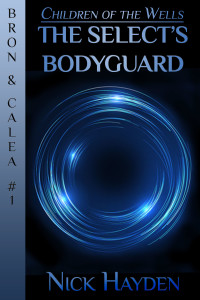
Don't miss a single word of stories as they are published! You'll also receive first notice of special sales and behind-the-scenes information.

